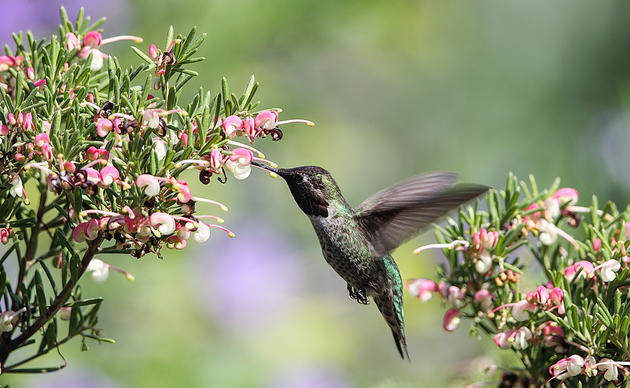It’s quite possible that California’s most famous spring migration tradition has to do with the swallows of Mission San Juan Capistrano. For years, the Cliff Swallows returned on or around March 19, St. Joseph’s day, to nest in the eaves of the old mission. Tourists came for miles to see the birds take some rest after their long journey fromArgentina. While the mission is a lovely venue, it’s more likely that the birds were more attracted by the insects that grew around the two nearby rivers, and the large building that made colonized nesting possible. The birds even inspired a popular song – and we’ve included the Ink Spots’ version below:
In recent years, the swallows have not returned to the mission in large numbers as they used to. The theory is that increased development has created more places to nest, and reduced the insect population. That said, the Cliff Swallow bird is still relatively plentiful throughout California, nesting in large colonies on buildings, cliffs, and under bridges. The gourd-shaped mud nests can number up to several hundred or thousand in a single location.
Although the Cliff Swallows won’t reach their peak until later in March, we’re starting to see them in large numbers already this spring. In this first map from eBird* from January shows relatively few numbers.
But then in February, we see the Cliff Swallows starting to pop up.
And now in this map from late last week, we’re seeing them in large numbers.
Just so you know where we’re headed, here’s a map from the end of March last year, which shows lots of Cliff Swallows everywhere.
* Another word about eBird: If you're into birds and you haven't discovered this amazing online tool, you should check it out now. Not only does it allow you to see great distribution maps of where birds are being seen, but it lets you log your sightings and see where friends are seeing birds. All this data is used by researchers to track bird populations -- so you're also helping conservation a lot by using eBird.
(photo of Cliff Swallow in flight by Peter LaTourrette)
By Garrison Frost
Monthly Giving
Our monthly giving program offers the peace of mind that you’re doing your part every day.




